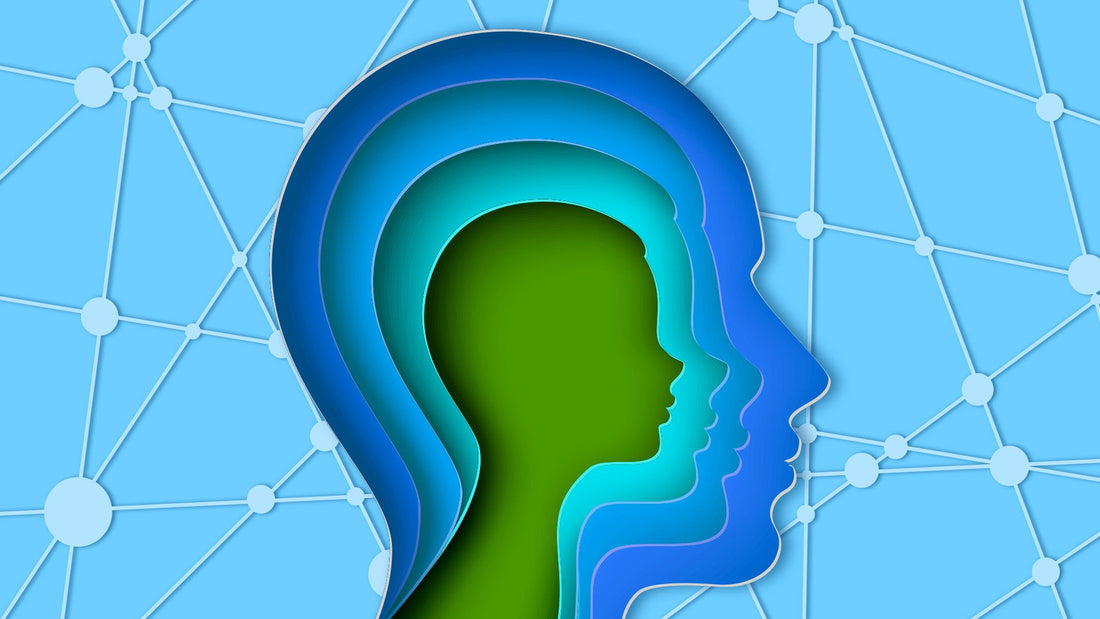
Men’s Mental Health Month
Share
Whilst we’re slowly but surely progressing on the topic of mental health, men’s mental health remains a whole other beast.
Thanks to traditional societal views, men are often burdened with ideals of being ‘manly’, ‘protectors’, and ‘strong’, while conversations around mental health can be seen as weak and vulnerable.
We’d argue that being vulnerable is in fact one of the strongest things a person can do, and that’s what makes Men’s Mental Health Month so important.
When Is Men's Mental Health Month?
Every November represents a month dedicated not only to men’s mental health but to men’s health in general.
Men’s Health Month is here to raise awareness of prostate cancer, testicular cancer, and men’s mental health, encouraging men to talk about their emotions and what they’re going through.
The idea that men don’t struggle with their mental health is deeply rooted in toxic masculinity, brought about by years of “traditional”, gender-based thinking.
Although women are more likely than men to be diagnosed with common mental disorders, 12.5% of men in England have a mental health disorder.

Charities like Movember are working to change the face of men’s health, raising awareness of mental health and suicide prevention, prostate cancer, and testicular cancer, and encouraging men to feel comfortable talking about what they’re going through.
Why Is This Month Important?
The stats around all three of these topics show exactly why we need months like this:
Mental health stats
- Suicide is the leading cause of death for men under 50 in the UK
- 52% of men would be concerned about taking time off work due to mental health issues, with 46% saying they’d be embarrassed or ashamed to tell their employer
Many men have become conditioned to hide their emotions thanks to things like:
- Toxic masculinity which is often portrayed in the media
- Negative responses from those around them when men open up
- Systemic racism and social expectations
Due to systemic racism, black men are also more likely to hide that they’re struggling with their mental health, are more likely to be sectioned under the Mental Health Act and face barriers to seeking help.
Prostate cancer stats
- 1 in 8 men will be diagnosed with prostate cancer in their lifetime
- Globally, more than 1.4 million men are diagnosed with prostate cancer each year
Testicular cancer stats
- Testicular cancer is the most common cancer in young men in the UK
- Whilst the odds of survival are over 95%, many men still deal with long-term, treatment-related side effects, leading their lives to become severely compromised
When going through any of the above situations, men’s mental health can become severely affected, so it’s important to know where to get help.
Where To Find Support
It can be tricky to admit or to get someone close to you to admit that they’re struggling, but the first step is to understand what mental health conditions they could be struggling with.
Finding support for yourself
Reaching out to loved ones or friends that you trust is a great way to talk about your feelings and take the first step to feeling better.
You could also find a community of people who understand how you feel, and where you feel safe to open up - find out what help is available to you locally with Mental Health UK.
For urgent help:
- Book an emergency appointment with your GP
- Local urgent mental health helpline numbers can be found here
- Call your local NHS 111 service
Seeking support for someone else
If you’re worried about someone you know, try to encourage them to talk about how they’re feeling in their own time.
Don’t force them to talk, let them have their space, but let them know that you’re there for them when they’re ready.
Ask questions about how they’re feeling and listen without judgment, giving them a space to open up and be heard.

While November is a great opportunity to recognise men’s health, everyone needs support all year round, so make sure to support the men in your life all the time where possible.
It's also important to recognise that self-care can help ground us, boosting our well-being and helping us feel more in tune with our own feelings.
